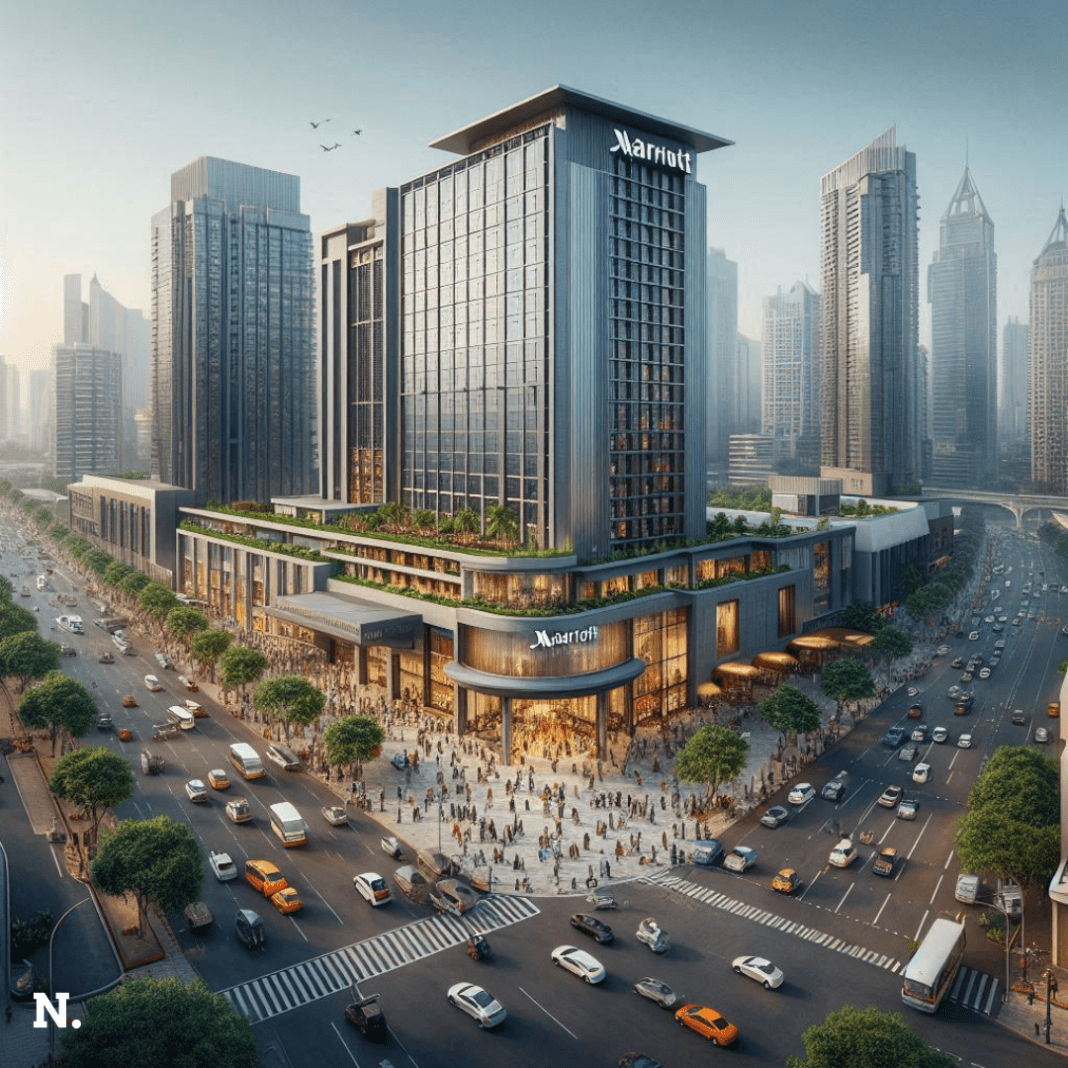India’s Rapidly Growing Hospitality Sector
India’s tourism industry is booming like never before. Over the past few years, the number of tourists—both domestic and international—has been on a steady rise. This surge in tourism is being driven by several factors, including the growing middle class, increasing disposable incomes, and better travel infrastructure. With more people now having the means and opportunity to travel, Marriott’s well-positioned way to cater to these travelers, offering them diverse accommodation options as they eagerly explore new destinations across the country.
But it’s not just Indians who are traveling. India is also becoming a popular destination for international visitors. In 2023, over 9.24 million foreign tourists visited India, marking a significant increase from previous years. Domestic tourism is also witnessing impressive growth as more Indians are exploring not just the popular spots but also lesser-known towns and cities.
This surge in travel has opened up huge opportunities for the hospitality sector. Hotels, resorts, and guest houses are seeing more guests than ever before. This demand has attracted the attention of global hospitality giants, all eager to establish their presence in India’s flourishing tourism industry.
Marriott’s Role in India’s Hospitality Boom
The largest hotel company in the world, Marriott International, jumped at the chance to capitalize on India’s expanding travel market. With its vast experience in the hospitality sector, Marriott has recognized that India’s booming tourism market is a perfect place for expansion.
Currently, Marriott has 153 hotels operating in India. But the company isn’t stopping there. It has 84 more hotels in the pipeline, which will increase its total number of rooms in the country to more than 42,000. Marriott is not only focusing on the big cities like Mumbai and Delhi but also has its sights set on smaller cities and towns, which are experiencing increased travel demand.
To accommodate a range of traveler types, Marriott provides a range of lodging options under its numerous brands. For those looking for luxury, Marriott has high-end brands like JW Marriott, Ritz-Carlton, and Westin. For travelers seeking more affordable options, it offers mid-tier and budget brands like Courtyard, Fairfield, and Four Points by Sheraton. This wide range of options allows Marriott to meet the needs of all kinds of travelers, from business executives to families on vacation.
In addition to expanding its existing brands, Marriott is also introducing new concepts in India. The business intends to open a hotel in Mumbai’s Bandra Kurla Complex as the first location for its EDITION luxury lifestyle brand in India. This expansion into the luxury lifestyle segment reflects the growing demand for unique, high-end experiences among Indian travelers.
Betting Big on India’s Smaller Cities
While Marriott has a strong presence in India’s major metropolitan areas, it is also betting big on smaller cities—known as tier-2 and tier-3 cities. These cities, once overlooked by the hospitality industry, are now becoming the next big focus for growth. With more Indians traveling within the country, these smaller cities are emerging as popular destinations for vacations and business trips.
The hospitality market in India is projected to grow from $24.61 billion in 2024 to $31.01 billion by 2029, and much of this growth is expected to come from these smaller cities. Marriott plans to add over 100 hotels by 2025, raising its total number of hotels in India to 250, in recognition of this trend.
Marriott’s Tech-Driven Approach to Enhance Hospitality in India
Marriott’s focus on these cities is not just about adding new hotels; it’s also about creating partnerships and leveraging technology to improve guest experiences. For example, Marriott has established its first Global Capability Centre (GCC) in Hyderabad. This center will serve as a hub for technological innovation, helping Marriott improve its operations and services across the country.
Marriott’s one of the key ways is using technology is through its Tech Accelerator program. This initiative focuses on enhancing guest experiences through innovations like AI-powered chatbots that provide personalized customer service and smart rooms that offer greater convenience and comfort. These innovations have become especially important in the post-pandemic world, where many travelers now expect contactless services and digital check-ins.
Another important factor driving Marriott’s expansion into smaller cities is the rise of online bookings. The hospitality industry has undergone a digital transformation, and more travelers are now booking their stays online. In 2017, offline bookings accounted for 58% of the market, but by 2024, online bookings are expected to make up 61% of all hotel reservations. This shift toward online bookings makes it easier for travelers to discover and book accommodations in smaller cities, further boosting tourism in these areas.
The Bottom Line
India’s tourism and hospitality sector is on the rise, and Marriott International is positioning itself to be a major player in this growing market. By expanding its presence in both big cities and smaller towns, Marriott is catering to the diverse needs of Indian and international travelers alike. With a strong focus on innovation and technology, Marriott is not just keeping up with the changes in the hospitality industry—it is helping shape the future of travel in India.





